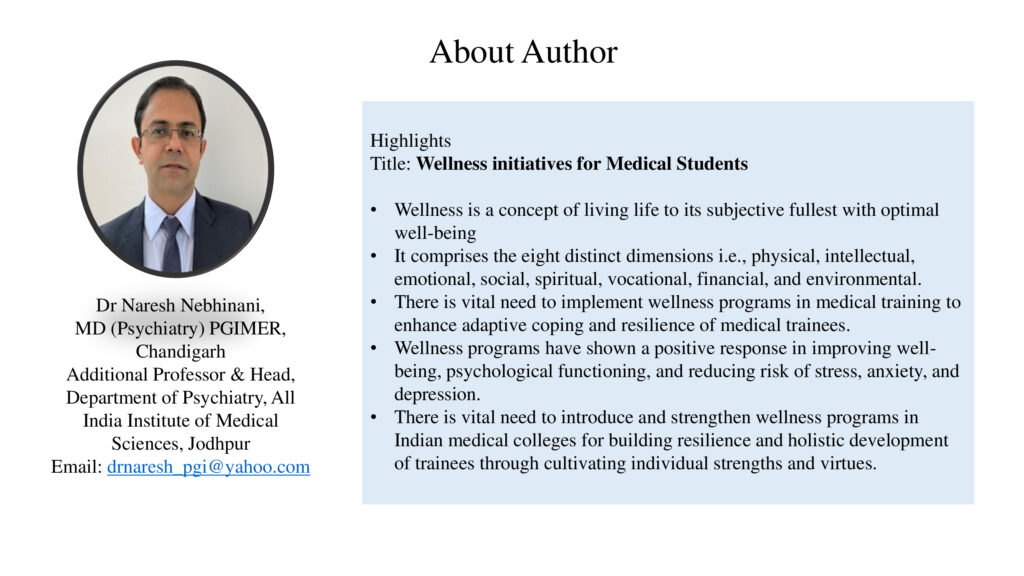Dr Naresh Nebhinani
Volume 12 Issue 5 May, 2022

“Look at the sky. We are not alone. The whole universe is friendly to us and conspires only to give the best to those who dream and work”- Dr A P J Abdul Kalam
Medical education is generally perceived stressful due to vast syllabus, longer period of training, multiple evaluations including entrance at entry level and for subsequent academic course, and ongoing exposure of morbidity and mortality in patients. Therefore, medical students are at greater risk of burnout and psychological problems and these issues generally increase in later years of medical training. However, smaller proportion of students seeks treatment of psychological disorders due to stigma, lack of awareness and other personal, or system related factors. These all factors affect their academic journey, career progression and patient care. Therefore, resilience building and wellness promotive strategies are vitally important.
Wellness is a concept of living life to its subjective fullest with optimal well-being. It comprises the eight distinct dimensions i.e. physical, intellectual, emotional, social, spiritual, vocational, financial, and environmental.
There is vital need to implement wellness programs in medical training to enhance adaptive coping and resilience of medical trainees. Such programs are present in many western medical schools, but almost very scarce in Indian medical institutions. Wellness programs have shown a positive response in improving well-being, psychological functioning, and reducing risk of stress, anxiety, and depression.
Following wellness strategies should be implemented on priority: to increase awareness about mental health issues; promote help-seeking behavior; identify the vulnerable students with entry-level screening and periodic assessment and provide timely intervention; introduce and strengthen faculty and student mentoring program; develop wellness program to promote the healthy lifestyle including yoga, meditation, physical exercise, hobby clubs and related activities; impart stress and time management skill training; availability of student counselors, psychologists, wellness coach for timely support; ensure close liaison of vulnerable students with mentors, and mental health professionals; crisis intervention team should be available to deal with mental health emergencies etc.
To conclude, wellness programs are proven effective in promoting wellbeing and reducing psychological problems in medical students. There is vital need to introduce and strengthen wellness programs in Indian medical colleges for building resilience and holistic development of trainees through cultivating individual strengths and virtues.

A wellness program must be mandatory in time management of medicos. With availability of the facilities, the time is not available in reality.
Yes madam, True! In several other profession and privet sector a wellness program is already in use. Perhaps it is the high time to implement it in the medical profession too